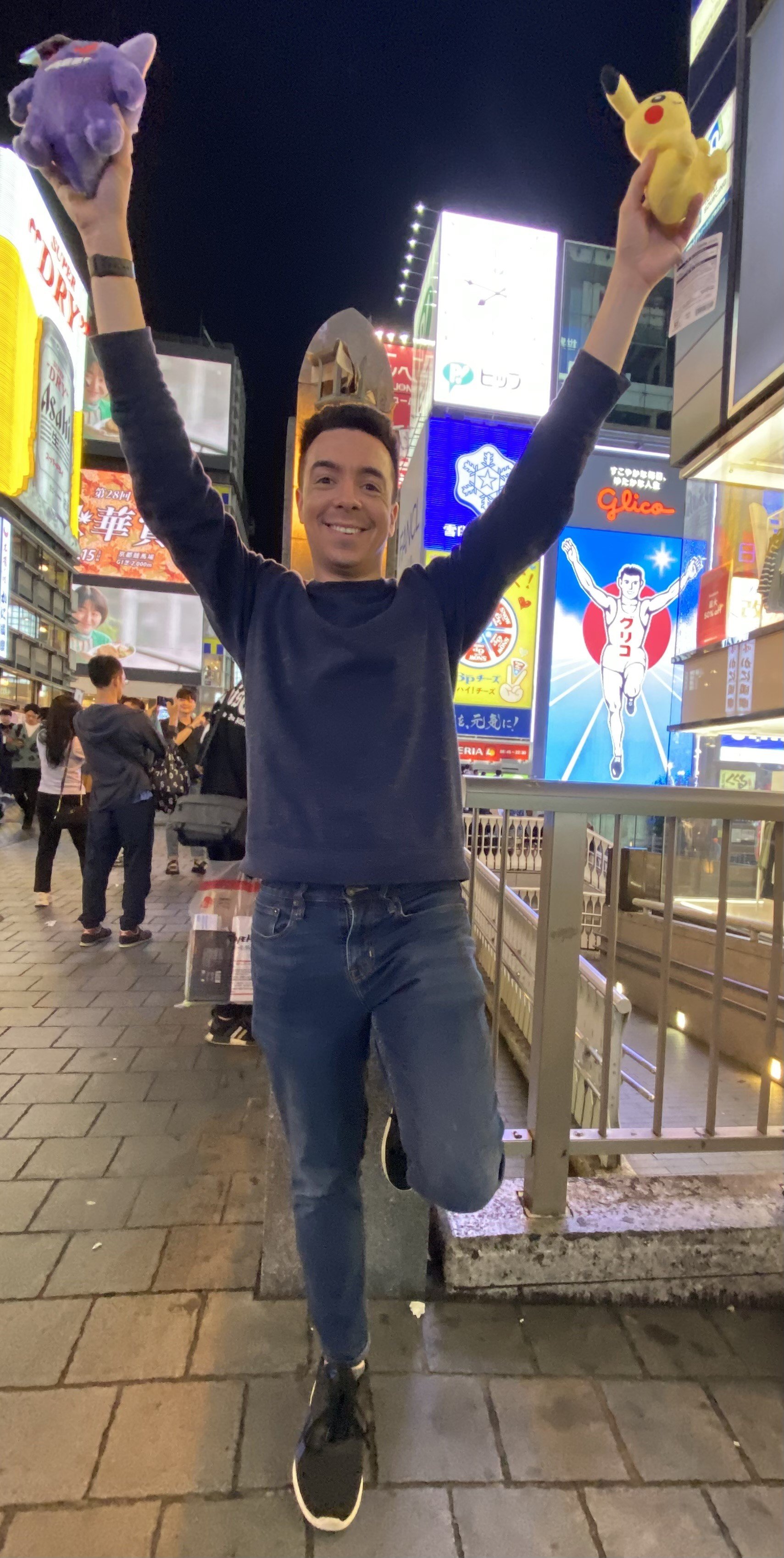Law Weekly Travel Log: Japan
Ryan Moore '25
Law Weekly Historian
In all my years of experience,[1] I have learned that very few people want to hear about your vacation, let alone read 800 words on it. Fortunately for me, the Virginia Law Weekly allows me to word vomit up anything I want to write about each week, provided I…sometimes…get my articles in on time. So, this week, you get to hear all about my trip to Japan.
Pictured: A future lawyer
Photo Credit: Ryan Moore '25
I will admit that Japan was never high on my list of places to travel. I have been to over twenty countries, ridden the length of the Trans-Siberian Railroad, and spent months living abroad in Germany. Now that Covid restrictions are largely lifted, I considered traveling to the Middle East, the region of my prior academic study. But my wife and I decided to spend ten days in Japan instead.[2] There are two main reasons why we chose Japan. First, my wife LOVES Japan. Like, “horse girl” levels of love. Second, my brother is currently getting his master's in international relations from a university in Kyoto. Before I was a law student, even before I was a private investigator, I was a graduate student in international relations at the University of Chicago.[3] Knowing firsthand how much of a mistake graduate school is, I wanted to check in on him before it was too late. That is how I found myself driving two hours to Dulles Airport in Washington, D.C. to take a fourteen-hour flight to Tokyo. However, I mostly stayed in Kyoto, the old imperial capital of Japan, with my brother who served as my personal tour guide and money exchanger.
Japan is an island country of 125 million people, 120 million of which were always in line in front of me. Three-fourths of the islands that constitute Japan are mountainous, so most of the major population centers are located on the coastal plains. Japan is prone to earthquakes as it is located on the notorious Pacific Ring of Fire. Unlike my prior vacation to Los Angeles, California, I (disappointingly) did not experience any earthquakes.
Because I am in law school, I had to research the legal system of Japan. The Japanese government operates under a post-World War II constitution promulgated by the United States. Japan is a civil law country largely based on the German legal system. Crime in Japan is famously low; however, “low” crime does not mean “no” crime. What Japan lacks in a murder rate, it makes up for in a high rate of umbrella theft. Everyone steals unattended umbrellas from each other; it’s practically a national pastime. I experienced this firsthand as my umbrella was stolen from the front of a convenience store right before my eyes.[4]
The exchange rate between the dollar and yen makes tourism in Japan cheaper than I expected. The central bank of Japan has struggled for decades to meet its two percent inflation target rate in order to stimulate the economy.[5] Low inflation, combined with a weak Yen and no open container laws meant I could get blasted on $2 tall boys anywhere I wanted. Imagine the freedom of New Orleans’s Bourbon Street but with public streets as clean as a hospital ward.
Speaking of cleanliness, there are what feels like no trash cans in Japan. This might seem counterintuitive at first, but it makes perfect sense. If there are no trash cans, everyone learns not to bring trash with them onto the streets. Thus, no littering. But this also means that many times I finished a beverage or four and was forced to carry the cans around with me for the next hour.
Japan has fully embraced the international appeal of its popular culture. Around the country you can find stores dedicated to Nintendo, Pokémon, One Piece, Pokémon, Capcom, and Pokémon. The Pokémon stores (named “Pokémon Centers” after the video games) are highly popular but are designed as tourist traps. The Pokémon Centers suck in unsuspecting foreign tourists who have fond childhood memories of the video games and TV series. They offer nearly every Pokémon in stuffed or plushie form for the low, low price of around $15 each. They always carry your favorite Pokémon in a deliberate attempt to prey on your sense of nostalgia. Maybe you are jet lagged and too tired to think straight. Maybe Professor Jeffries’s Civil Rights Litigation class is harder than you expected. Maybe you are spending that BigLaw summer associate money before you have actually earned it.
Suffice it to say, you can fit $496 worth of Pokémon items in your carry-on luggage if you pack carefully.
If I had to impart an underlying message to my trip, it would go something roughly like this. We, the class of 2025, are nearly halfway through our law school careers. One day we will graduate, take the Bar, and enter the workforce. Whether you are starting at a private firm or public service, our time and ability to travel will soon both be limited. If there is anything you take away from this article, it is this: Go out, travel, explore, and appreciate the world around you.
---
tqy7zz@virginia.edu
[1] And as the president of Older Wiser Law Students, I have a lot of years.
[2] Shout out to Casey Kuhn for planning the entire trip.
[3] I have yet to identify other international relations graduate school refugees. If you are one, my email is in this article.
[4] This is the only instance in which I, an aspiring public defender, would support “tough on crime” policies.
[5] https://www.imf.org/en/News/Articles/2023/05/24/cf-uncertainty-around-japan-inflation-underscores-need-for-nimble-monetary-policy.

